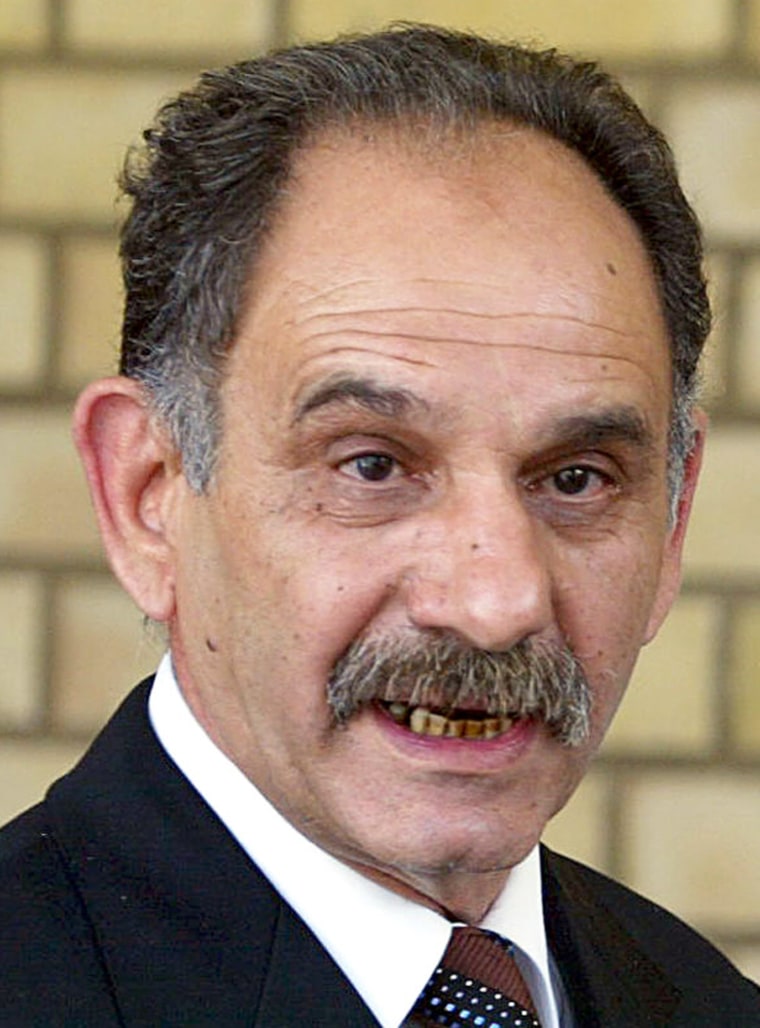U.S. and Iraqi officials are considering difficult-to-swallow ideas — including amnesties for their enemies — as they look for ways to end the country’s rampant insurgency and isolate extremists wanting to start a civil war.
Negotiations have just begun between U.S. and Iraqi officials on drafting an amnesty policy, which would reach out to Iraqi militants fighting U.S. forces, say officials in both the Iraqi and American governments.
Foreign extremists like Abu Musab al-Zarqawi, responsible for Iraq’s bloodiest attacks, would not be offered any amnesty, the Iraqi and U.S. authorities told The Associated Press in recent days.
But amnesties for less senior Iraqi insurgents are seen as a key weapon to split the insurgency between Iraqi and non-Iraqi lines and further alienate foreign fighters like al-Zarqawi.
Iraq’s minister for national security said Sunday an amnesty policy is being drawn up, but he said insurgent groups first must do more to convince authorities they are serious about making peace.
“Those who had committed homicides and caused blood shedding for the innocents will be excluded from this amnesty,” said the minister, Abdul Karim al-Inizi. “Talking about issuing an amnesty soon is premature as this depends on whether the insurgents want to take a step forward.”
U.S. hopes 'this idea develops'
Pentagon spokesman Lt. Col. Barry Venable said the Iraqi government has raised the amnesty issue and “we look forward to working closely with the Iraqi government as this idea develops.”
“Any successful counterinsurgency strategy requires the U.S. and Iraqi authorities to do everything possible to split the insurgency and persuade as many Sunni elements as possible to join the peaceful political process,” said Anthony Cordesman, an Iraq expert with the Center for Strategic and International Studies, who says he has been involved in informal talks.
“This does not mean blanket amnesty,” he said. It could, however, mean negotiations that lead to “pardoning or ignoring the actions of movements and opposition elements that supported the insurgency when this was done out of nationalism, fear,” Cordesman said.
The Pentagon is helping formulate an amnesty policy, but officials stressed on condition of anonymity that the work is being carried out in response to requests by Iraqi authorities, who are desperate to be seen as leading the process.
'Early stages' of talks
“These (amnesty) discussions are in their early stages. Any kind of amnesty program would have to be driven by the Iraqi government, not the U.S. government,” a U.S. defense official said on condition of anonymity, citing security and political concerns.
But he added that the American government “hopes people who took part in crimes against Iraqi, U.S. or coalition personnel or civilians would face justice.”
The middle men are influential leaders from the once-powerful Sunni Arab minority, whose ranks have spawned the bulk of Iraq’s anti-U.S. insurgents. Sunnis enjoyed the patronage of Saddam Hussein, a secular Sunni himself, but lost out after his fall.
Some Sunni leaders have said they have been meeting with associates of anti-U.S. militant groups to try to persuade them to lay down their arms.
Exactly who any amnesty would apply to remains unclear, but the U.S. and Iraqi governments say they have begun drawing up such a policy to curb the stream of suicide bombings, assassinations and kidnappings.
Potential for backlash
The issue is politically charged with the potential to enrage many Iraqis and Americans.
“I think eventually we will probably talk with people who have killed Americans,” said Kenneth Katzman, an expert on the Persian Gulf region with the U.S. Congressional Research Service. “We may not see anybody at the table who has killed U.S. soldiers but we will see groups represented who have killed Americans.”
The diplomatic efforts are being driven by a growing realization that military force alone can’t end the insurgency.
Iraqi officials say “many” homegrown militant groups opposed to the U.S.-led occupation want to join the post-Saddam political process now a sovereign Iraqi government is in place.
But the government says it won’t negotiate with al-Zarqawi and other jihadists using Iraq as a battleground to wage holy war.
Iraqi authorities reinstated capital punishment after the June 28 handover of sovereignty from the U.S.-led occupation authorities. Several convicted murderers responsible for beheading Iraqi policemen were sentenced to death last month.
Six months of meetings
During the past two weeks, leaders from Iraq’s Sunni and Shiite communities announced they have been meeting with insurgent groups to try get them to lay down their arms.

“Over the past six months, we have been in touch with people representing about 80 percent of the Iraqi resistance in different parts of the country, who are asking how can we guarantee anything positive from the other side,” said legislator Salih al-Mutlak, leader of a Sunni Arab umbrella group.
Al-Mutlak said his group, the National Dialogue Council, has been a go-between for U.S., British and Iraqi officials on one side and Iraqi insurgents on the other.
Al-Mutlak said Iraqi insurgents have demands of their own: They want guarantees that attacks against Sunni cities will stop; that thousands of detainees will be released from U.S.-run prisons; and — most importantly — that the U.S.-led occupation will end.
“They want to reach an agreement, but would like to see evidence that the other side is really positive,” al-Mutlak said.